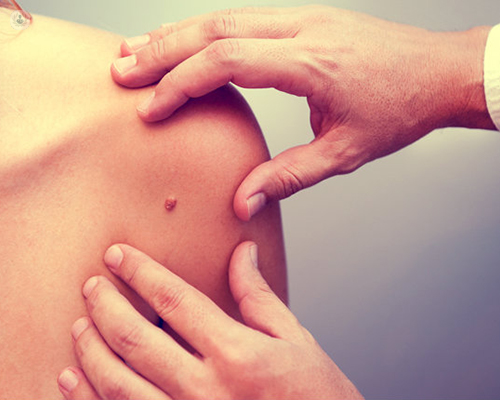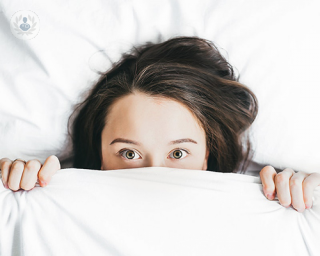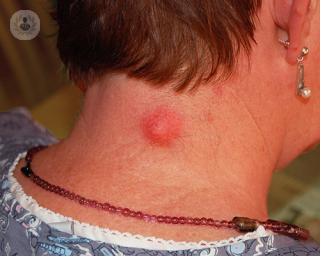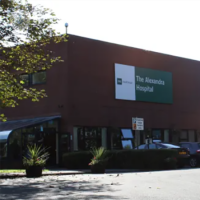Cysts
What are cysts?
Cysts are closed sacs in the body’s tissue that may be filled with fluid, air, or other substances. They have a membrane, or “shell”, to divide them from the surrounding tissue, and the cells that make up this membrane are abnormal compared to the surrounding cells.
Cysts can appear almost anywhere on the body, including on bones, organs, and the skin. There are hundreds or types of cyst and many possible causes. Most cysts are benign, and some resolve on their own; others may require surgical removal, and a small proportion are cancerous.
What are the different types of cysts?
There are many types of cyst. The main ones include the following:
- cystic acne
- ganglion cyst
- ingrown hair cyst
- kidney cysts (e.g. polycystic kidney disease (PKD))
- liver cyst
- mucus cyst (mucocele)
- ovarian cyst
- pancreatic cyst
- sebaceous cyst
- tarlov cyst
What is the prognosis?
The vast majority of cysts are benign (non-cancerous) and do not cause many problems for patients. Many cysts simply go away on their own. However, if a cyst fails to resolve by itself, if it is causing particular discomfort or pain, or if its size and appearance bother the patient, it may require surgical removal, although this may also depend on the location of the cyst.
A small proportion of cysts are cancerous, with the sac being formed by the body as an immune response to try to contain the cancerous cells and prevent them from spreading. However, if the cancer already has its own blood supply, the cyst will be ineffective. It is important to have any cyst that does not disappear quickly checked out by a doctor and monitored to make sure it is not cancerous.

What are the main symptoms of cysts?
Cysts on the skin or close to it may be visible as lumps on the body. Cysts on the internal organs may be more difficult to spot, unless they cause symptoms such as pain in that area or affect the function of the organ. For example, kidney cysts caused by polycystic kidney disease (PKD) can lead to frequent urination or blood in the urine.
What causes cysts?
A number of things can lead to cysts, including blocked ducts or glands, infections, inherited conditions, chronic inflammation, parasites, injuries, and tumours.
How are cysts treated?
The treatment will depend on the type, size, and location of the cyst. Some common treatments include:
- draining the fluid or other material from the cyst using a syringe
- medication to reduce inflammation in the cyst
- surgery to remove the cyst (usually as a last resort for persistent cysts or if the cyst is cancerous)

What type of specialist treats cysts?
Cysts can be treated by doctors and surgeons from a number of different specialties, depending on the type and location of the cyst. For example, sebaceous cysts and other cysts affecting the skin may be treated by a dermatologist, while ovarian cysts may be treated by an obstetrician/gynaecologist.
What can happen if my cyst becomes infected?
If a cyst becomes infected, it can become sore and red, and may develop into an abscess (filled with pus).
What happens if a cyst ruptures on its own?
In the event that a cyst ruptures on its own, the cyst will begin to leak, which will eventually lead to the surrounding skin becoming infected.
When should you seek medical attention for a cyst?
Patients are advised to seek medical help if they notice that their cyst becomes very painful and/or inflamed.

















